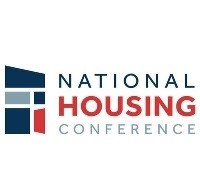Reps. Kelly, Kildee, Miller, Sewell reintroduce Opportunity Zones Transparency, Extension, and Improvement Act
WASHINGTON, D.C. – RealEstateRama – U.S. Representatives Mike Kelly (R-PA), Chairman of the Ways and Means Subcommittee on Tax, Dan Kildee (D-MI), Carol Miller (R-WV), and Terri Sewell (D-AL) introduced the Opportunity Zones Transparency, Extension, and Improvement Act, legislation that would require mandatory data reporting of Opportunity Zone investments to increase transparency and streamline the reporting process. The bill would also extend the investment and deferral window to the end of 2028, providing a longer time horizon to drive more investment into high-impact projects in low-income communities.
You can read more about the bill here. You can find a one-pager here and a section-by-section summary here.
“Opportunity Zones have breathed new life into neighborhoods and Main Street businesses that have not seen private investment in years, all without spending a single taxpayer dollar,” Rep. Kelly said. “This legislation builds upon the successes of Opportunity Zones and now adds new guidelines to make sure this program can benefit more communities for years to come.”
“The Opportunity Zones program has helped provide economic development tools to grow communities in Michigan,” Rep. Kildee said. “But the Opportunity Zones program needs improvements, as industrial sites like Buick City in my hometown of Flint, were overlooked by it. I’m proud to work with Congressman Kelly on this bipartisan legislation to create new economic opportunities for mid-Michigan, helping revitalize former industrial sites to grow our economy and strengthen our neighborhoods.”
“Creating Opportunity Zones have promoted businesses to settle in southern West Virginia and communities across the country. Promoting high-impact projects, particularly in rural and overlooked areas, will set future generations up for success and drive economic growth. The Opportunity Zones Transparency, Extension, and Improvement Act will advance success across the United States and establish a standard that all opportunity zone policies should follow,” said Congresswoman Miller.
“Increasing opportunity across Alabama’s 7th Congressional District continues to be among my top priorities,” said Rep. Sewell. “That is why I have fought so hard to make the Opportunity Zone program work for areas like the Black Belt, where communities will most benefit from increased economic opportunity. This legislation will make critical improvements to Opportunity Zones to help grow our local economies and strengthen our communities.”
WHAT THEY’RE SAYING
“Opportunity Zones are playing a vital role in attracting much-needed investment across a diverse range of high-need communities, and this legislation would make the policy an even more effective tool for economic development,” said John Lettieri, President and CEO of the Economic Innovation Group. “EIG applauds Representatives Kelly, Kildee, Miller, and Sewell for their leadership in reintroducing the Opportunity Zones Transparency, Extension, and Improvement Act to make Opportunity Zones a stronger, better targeted, and more transparent incentive.”
“Opportunity Zones are helping to fuel over $400 million of long term capital investment into the revitalization of downtown Erie, Pennsylvania, which is home to one of the poorest zip codes in America,” said Drew Whiting, CEO of the Erie Downtown Development Corporation. “Extending and improving the legislation will ensure that Opportunity Zones continue to benefit communities with the greatest economic and social needs.”
“As active Opportunity Zone investors, we are excited to see this legislation that can ultimately drive much more impact in distressed communities,” said Ross Baird, CEO and Founder, Blueprint Local. “We have participated in dozens of projects across the country that have created thousands of jobs, and if this act does not pass, hundreds more projects will die on the vine. It is very positive to see the reporting requirements, which will bring transparency to this catalytic program and drive more impact in communities, as well as the extension and fund of funds provisions, which will help many more investors participate in the program and help the country’s most impactful projects find the capital they need.”
“This bipartisan legislation to improve the Opportunity Zones policy will drive investors to focus more on social impact in communities like South Los Angeles,” said Martin Muoto, CEO of SoLa Impact. “The OZ legislation has enabled SoLa to leverage private capital to build over 3,000 affordable and workforce housing units and house hundreds of formerly homeless residents.”
“As presented, the Opportunity Zones Transparency, Extension, and Improvement Act will be the biggest step forward for Opportunity Zones in the program’s history,” said Alex Flachsbart, Founder and CEO, Opportunity Alabama. “Providing a longer investment and deferral window and allowing the feeder fund concept will substantially improve the flow of capital into the program – and, thanks to inclusion of additional reporting requirements, we can finally get real data on where those funds will flow. Most important, though, is the inclusion of the State and Community Dynamism Fund, a tool that – if properly implemented – could make Opportunity Zones the most effective incentive in the tax code at driving impactful, ground-up community development work.”
“Arctaris Impact Investors has invested in the revitalization of under-invested communities for 14 years over 7 funds and, in our experience, the Opportunity Zone incentive is more efficient for delivering capital and social impact to low income census tracts than all the other federal and local economic development programs combined,” said Jonathan Tower, Managing Partner, Arctaris Impact Investors. “The proposed amendments will help attract more institutional-grade capital to OZ funds, and Arctaris looks forward to expanding its platform to support the growth of diverse businesses, community infrastructure, and real estate. Further, Arctaris has long advocated for and adhered to higher standards for impact reporting than contained in the original legislation, and we welcome the greater transparency requirements in the proposed amendments.”
“We’re really supportive of this legislation to improve key elements of the Opportunity Zone policy. As impact-focused investors active in the OZ strategy, we believe the proposed changes are likely to improve transparency and accountability program-wide, and more directly target capital and other resources into the low-income communities around this country that stand to benefit most from OZ investment,” said Jeremy Keele, Managing Partner, Catalyst Opportunity Funds.
“The changes addressed in this bill not only practically strengthens the Opportunity Zone program, but also continues to align investors to the intent of the incentive. We are thrilled to see the thoughtful progress,” said Stephanie Copeland, Partner, Four Points Funding.
“The Opportunity Zone program is a positive, compelling example of government and the private sector working together to solve our nation’s challenges. Investments made possible through the Opportunity Zone program will help underserved communities struggling to bounce back from pandemic-induced economic hardships,” said Rick Wade, Senior Vice President, U.S. Chamber of Commerce. “The U.S. Chamber of Commerce is proud to support this bipartisan legislation that ensures Opportunity Zone financing reaches the areas of our country that need it the most and expands the reach of a public-private partnership on track to decrease the poverty rate by 11 percent.”
“Our firm specializes in mixed-income multifamily properties; we currently manage over $50 million in Opportunity Zone equity, which is projected to generate more than $200 million in multifamily development across Texas,” said Barrett Linburg & Seth Bame, Founders of Savoy Equity Partners. “The extended timeframe for the Opportunity Zones policy is critical to encouraging more long-term investment in underserved communities. We also fully support the reporting requirements in this bill. This transparency is essential for demonstrating the tangible benefits of Opportunity Zones. This policy offers a meaningful way to improve low-income communities while securing favorable returns, and this legislation would help further scale our work in these communities across Texas.”
“Our firm is actively using Opportunity Zones capital to invest in the revitalization of communities in Washington, DC and beyond, bringing vital resources and services to neighborhoods that have historically been left behind,” said Tom Skinner and Louis Dubin, managing partners of Redbrick LMD. “This legislation would help us continue this work and reach even more communities by extending the timeline to invest and creating more pathways and support for investments. Additionally, we support the inclusion of reporting requirements so we can all gain a better understanding of how this policy is working for communities and their residents.”
“The Chicagoland Opportunity Zones Consortium (COZC) is deeply supportive of the OZ Transparency Extension and Improvement Act,” said Robin Schabes, Director, Chicagoland Opportunity Zones Consortium. “This legislation will strengthen the Opportunity Zones program, which, in its brief existence, has already made pivotal strides in bringing needed capital to underserved neighborhoods. The increased transparency this bill calls for will help ensure that these vital investments are supporting low- and moderate-income areas where they are needed most. Here in Chicago, OZs have spurred more than $100 million of private investment in several LMI neighborhoods and capitalized high-impact projects that would have been difficult to bring to fruition otherwise.“
BACKGROUND
Opportunity Zones (OZs) were established in the 2017 Tax Cuts and Jobs Act, the landmark tax reform law Rep. Kelly led as a member of the Ways & Means Committee. OZs are federally recognized, economically distressed communities where new investments can be eligible for preferential capital gains tax treatment. More than $29 billion have been invested in 6,000 qualified opportunity funds through 2019.
In Erie, Pennsylvania, located in Rep. Kelly’s district, Opportunity Zones have allowed for more than $100 million in new investment in what was once the poorest ZIP code in the United States. That investment in downtown Erie has seen new housing, dining, and shopping opportunities spurred by the investment. You can read more about Erie’s Opportunity Zones here.















